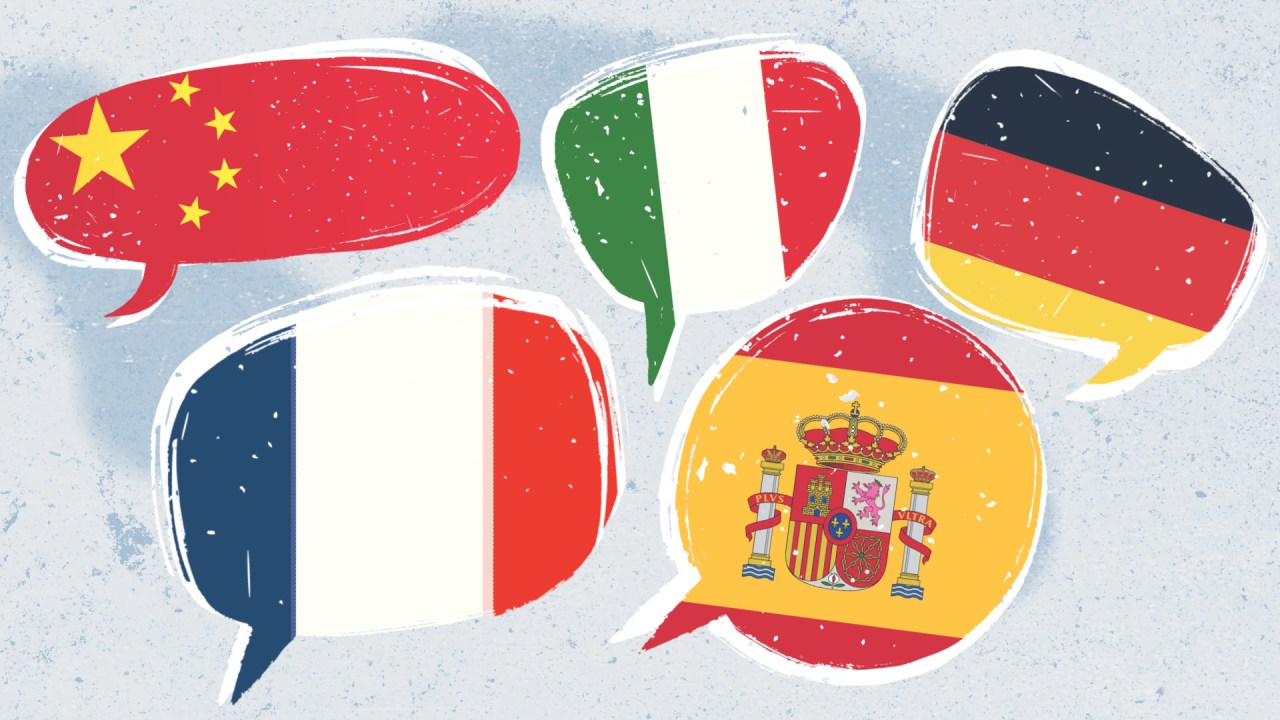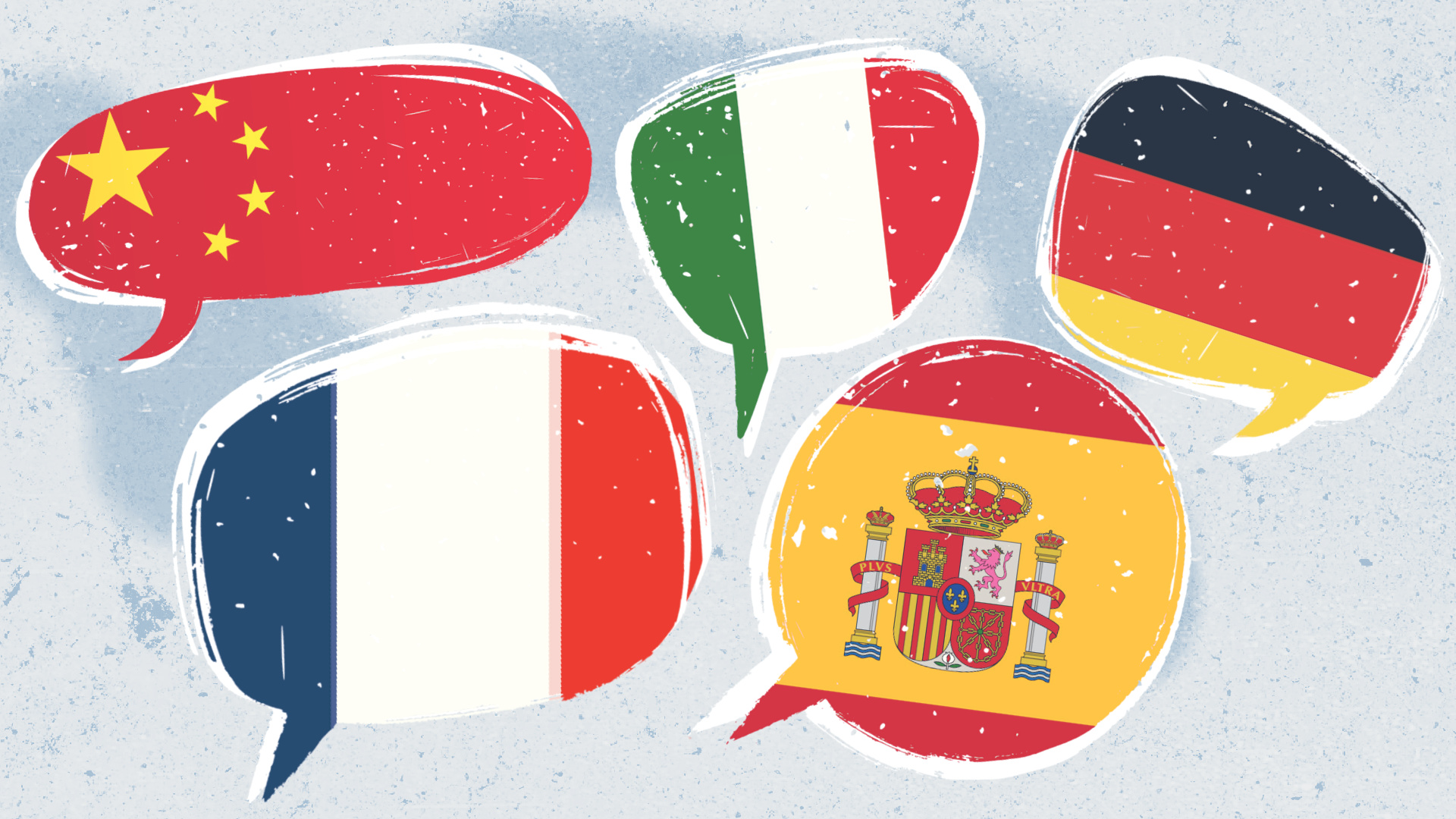The British are, on the whole, rather rubbish at languages. We all know people who live up to P.G. Wodehouse’s description of the ‘shifty hangdog look which announces that an Englishman is about to talk French’.
As more of the world speaks English, our monolingualism is getting worse. According to the British Council, only one in three of us speaks a second language. But it’s not entirely our fault – we’ve been set up to fail by our education system.
The national struggle with languages starts young. The first time most of us will encounter a modern language – usually French – is at primary school, where its teaching is patchy to say the least. A review by Ofsted into the languages curriculum found that, in many cases, instead of being taught grammar and tools to help ‘generate their own language’, children were simply being given phrases and thematic groups of vocabulary without any knowledge of how to apply them outside rigid stock phrases.
Forcing vocab into children’s minds and hoping grammar falls into place just doesn’t work
In secondary schools, teachers often find it easiest to start language lessons from scratch, regardless of a pupil’s previous experience. So it’s back to the same set phrases, thematic vocabulary and sketchy grammar as before. Understandably, many children find this demotivating and soon give up on the subject.
When New Labour came to power, 85 per cent of GCSE pupils studied a modern language. It hit a low of 40 per cent in 2010 and has only slightly recovered to 45 per cent. Just 2 per cent of pupils now study a language at A-level – a third of the mid-1990s peak.
European languages, in particular, are in crisis. Over the past 20 years, the number of children sitting a public exam in French and German has more than halved. In 2003, 308,342 children took French GCSE; this year just 126,560 did. Similarly, ten years ago, 3,999 and 10,249 teenagers sat German and French A-levels. This year, a measly 2,210 sat German, while 6,510 took French. Even Spanish, which has seen a rise in the number of children studying it over the past decade, is taken at A-level by 1 per cent fewer pupils than in 2013.
The Department for Education’s attitude to all this is depressingly defeatist. Astonishingly, from next year, children studying GCSE French, German and Spanish will no longer be examined on vocabulary that isn’t included on the official exam-board vocab list, which consists of 1,700 words. Any other words will be glossaried.
Part of the joy of learning a language comes from exploring its vocabulary. What message does it send to pupils about ambition if the attitude to teaching languages becomes so prescriptive? How can children ever come close to developing fluency in a language if they’re not encouraged to go further than learning words off a list?
There is no quick trick to learning grammar: it has to be memorised and practised and it can often seem hard and monotonous. But the alternative – forcing shambolic stock phrases and vocab into children’s minds and hoping grammar falls into place – just doesn’t work.
Brexit and the pandemic have also left their mark on how schools teach languages. Fewer teachers and language assistants from the EU have come to Britain for work in the past few years and thanks to lockdowns schools have struggled to maintain exchange programmes with the continent. Last year, a British Council survey found 45 per cent of state schools and 18 per cent of independents had no language assistants or relationships with partner schools abroad.
At least the government seems to have partially recognised that staffing is an issue. Last month, in conjunction with the British Council, the Department for Education launched a recruitment drive offering 175 bursaries worth £27,000 for French and German citizens to come to the UK and train as language teachers. George Osborne’s £10 million investment in Mandarin tuition has seen a big increase but to still far too low a total 5,500 GCSEs and 1,350 A-levels in 2022. The number of pupils studying Spanish has doubled over the past decade and is now the most popular A-level language.

The biggest barrier of all is cultural. If there is to be an overhaul in the way languages are taught in schools, it will require a fundamental change of attitude. Languages need to be seen as more than just a handy skill when on holiday. Those who argue that most of the world already speaks English are missing the point, as are those who say it’s enough to rely on Google Translate. Learning another language is the gateway into other cultures, histories and mindsets.
The fact that languages are dumped from the school timetable whenever anything supposedly more important crops up says a lot about Britain’s educational priorities. If this can change, then the world will open up at our feet.







Comments